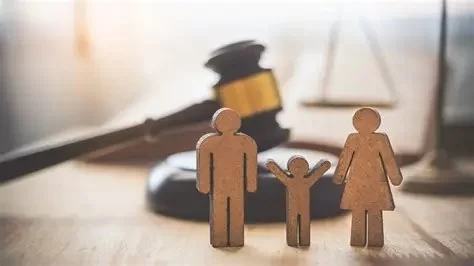
- Understanding Legal Rights in Child Protective Services Cases
- Parental Rights and Due Process in CPS Investigations
- How to Respond When Child Protective Services Contacts You
- The Role of Legal Representation in CPS Cases
- Real Cases and Lessons Learned
- Get Professional Guidance from ESPLawyers
Understanding Legal Rights in Child Protective Services Cases
When a parent or guardian becomes involved with Child Protective Services (CPS), it can be one of the most stressful and confusing experiences imaginable. Understanding your legal rights in Child Protective Services cases is critical to protecting your family and ensuring that the process remains fair. CPS agencies are responsible for investigating allegations of child neglect or abuse, but parents often feel overwhelmed by the complexity and authority of the system. Knowing your rights — and how to assert them properly — can make a significant difference in the outcome of your case.
Each state in the U.S. has its own regulations governing CPS, but all must follow constitutional due process principles. This means that even if CPS opens a case against you, you still retain fundamental rights such as the presumption of innocence and the right to a fair hearing before any permanent action is taken regarding your child’s custody.
Parental Rights and Due Process in CPS Investigations
Parents have specific legal rights when dealing with CPS investigations. These include the right to:
1. Be Informed of Allegations
Parents are entitled to know the exact nature of the complaint that triggered the investigation. While CPS may withhold certain confidential details to protect the reporter’s identity, they must inform you of the type of alleged misconduct — for example, physical abuse, neglect, or endangerment.
2. Remain Silent and Seek Legal Counsel
Anything you say to a CPS investigator can be used as evidence in family or criminal court. You have the right to decline interviews until you have consulted an attorney. Many parents mistakenly believe cooperation without legal advice will make things easier, but statements can be misinterpreted or taken out of context. Consulting an experienced attorney early is crucial.
3. Receive a Fair Hearing
If CPS recommends removing a child from the home, the agency must provide a formal hearing before a judge within a short timeframe. You have the right to present evidence, call witnesses, and challenge the agency’s findings. This ensures that family integrity is not compromised without judicial oversight.
How to Respond When Child Protective Services Contacts You
The first moments after being contacted by CPS can set the tone for the entire investigation. Remaining calm, respectful, and informed is key. Avoid emotional reactions that could be misinterpreted as hostility. Request written documentation of the allegations, and confirm all communications in writing whenever possible.
Never agree to sign documents or make statements you do not fully understand. You also have the right to deny CPS entry into your home unless they have a warrant or court order. However, cooperation — within the bounds of your rights — can demonstrate that you take the matter seriously and are willing to work toward a resolution. A qualified legal representative can help balance cooperation with self-protection.
The Role of Legal Representation in CPS Cases
Having an attorney who specializes in family law or child welfare can dramatically affect the outcome of your CPS case. A legal professional can explain each step of the process, help you gather evidence, and ensure that your constitutional rights are upheld. They can also act as a buffer between you and the agency, preventing unnecessary disclosures or procedural missteps.
For example, a seasoned lawyer will help determine whether CPS acted lawfully during the investigation, assess the strength of the agency’s evidence, and build a strategy to protect parental rights. In some cases, they may even negotiate alternative solutions, such as voluntary safety plans, that allow children to remain with their families while addressing CPS concerns.
Real Cases and Lessons Learned
Consider the case of a single mother in Texas who was falsely accused of neglect after her child’s teacher reported frequent absences. With the help of an attorney, she was able to present medical records proving her child’s illness and secure a dismissal of the case before it reached court. In another case, a family in California faced allegations of emotional abuse after a neighbor misinterpreted a disciplinary incident. Legal counsel intervened early, ensuring that the investigation closed without any record of wrongdoing.
These real-world examples illustrate how quickly misunderstandings can escalate — and how vital it is to understand your legal rights in Child Protective Services cases. With the right strategy and support, parents can protect both their families and their reputations.
Get Professional Guidance from ESPLawyers
Dealing with CPS can feel overwhelming, but you don’t have to navigate it alone. ESPLawyers provides expert legal assistance tailored to families facing CPS investigations or custody challenges. Their experienced attorneys understand the emotional and legal complexities of child protection cases and work diligently to defend parental rights. If you or someone you know is facing a CPS inquiry, seeking early professional advice can make all the difference. Reach out to ESPLawyers to learn how their team can help safeguard your family’s future.








